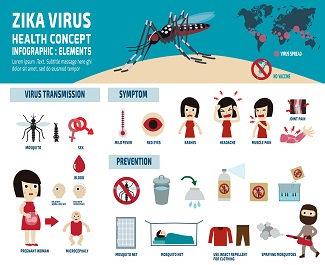It’s normal to feel upset and anxious over the creeping numbers on your weighing scale during pregnancy. It doesn’t help too when friends and neighbors comment on how big you’re getting. With swollen breasts and swollen feet and a Kim Kardashian butt, weight gain during pregnancy can really be physically and emotionally taxing on mamas! However, weight gain during pregnancy is essential for your baby’s growth. Your baby needs nutrients and energy in order to grow healthily.
Why do you gain weight during pregnancy?
Increased blood supply
When you are pregnant, your body starts to increase blood supply by almost 50%. There is little increase in blood supply during the first trimester, and it gradually increases to a maximum at around 34-36 weeks. Increased blood volume results in weight gain.
Stored fat for breastfeeding
During pregnancy, your body prepares for breastfeeding by storing fats. This fat storage serves as an energy “insurance” to help your body function well once the baby is born. Breastfeeding is a process that is energy-demanding, so these fat stores are utilized to produce milk for your baby. When your body depletes the calories that you consume for the day, these fat stores are tapped on to keep milk supply and other bodily processes going.
Amniotic fluid
Amniotic fluid is a clear, yellowish fluid that surrounds the fetus during pregnancy. The amniotic fluid is made of water, nutrients, hormones and antibodies. This fluid is absolutely essential in protecting and nourishing the baby. As the baby grows, the volume of amniotic fluid increases as well, and this contributes to overall weight gain.
Growing baby
Your little one is growing, so of course you get heavier too as your baby grows. Your baby will weigh around 3kg at birth.
Changing lifestyle
Pregnancy can lead to drastic changes in your daily lifestyle and habits, including your diet and your activity levels. You may become more sedentary because of increased fatigue and experience restriction in the types of activity you can engage in.
Changing hormones
Women experience changes in hormones during pregnancy. Research has shown that the hormone ‘Neuropeptide Y’ (NPY) increases during pregnancy, and this hormone is responsible for increasing appetite. During pregnancy, many women experience unusual food cravings as well. There is still no clear explanation as to why women experience specific food cravings. Nonetheless, when cravings for foods high in fat, salt and sugar are not managed, overconsumption will lead to weight gain.
What is the recommended pregnancy weight gain?
Recommendations on the amount of weight you should gain during pregnancy is usually based on your Body Mass Index (BMI).
While it is not necessary to keep to these guidelines strictly, it is recommended that for women who were underweight before pregnancy (BMI < 18.5), you should aim to gain an average of 0.5 to 2kg during the first trimester, and 0.4 to 0.6kg per week during the second and third trimesters.
For women who had a normal weight before pregnancy (BMI 18.5-24.9), you should aim to gain an average of 0.5 to 2kg during the first trimester, and 0.4 to 0.5kg per week during the second and third trimesters.
For women who were overweight before pregnancy (BMI 25-29.9), you should aim to gain an average of 0.5 to 2kg during the first trimester, and 0.2 to 0.3kg per week during the second and third trimesters.
For women who were obese before pregnancy (BMI > 30), you should aim to gain an average of 0.5 to 2kg during the first trimester, and 0.16 to 0.25kg per week during the second and third trimesters.
Do keep in mind that you might not gain any weight during your first trimester as your baby will only grow to about pea-size.
Source: KK Women and Children’s Hospital
Remember that these are only general guidelines. There is no need to follow them strictly as every mother’s body is different. In all circumstances, you should always consult your doctor for the best advice. Your doctor should be able to give you recommendations that are specific to your pregnancy situation.
How fast should you gain weight?
You should gain weight gradually during your pregnancy. Your baby needs a steady amount of nutrients and energy from your body every day, so binging on some days and cutting back your calorie intake significantly on other days might be harmful to your baby’s development.
How can you manage your weight gain during pregnancy?
Excessive weight gain can be detrimental for both you and your baby. Gaining too much weight during pregnancy has been linked to an increased chance risk of preterm labor, gestational diabetes, caesarian complications, an increased risk of childhood obesity and metabolic syndrome
Gaining too little weight during pregnancy can also be a problem as you are more likely to give birth to a baby with a lower birthweight, which increases their risk of developing diabetes, heart disease, high blood pressure and obesity in future.
As you can see, it is important to gain the right amount of weight during pregnancy. Not too much, but not too less either.
Eating for two =/= eating twice the calories!
During pregnancy, your body needs only about 300 extra calories to support the baby’s growth and development, so there is no need to increase your caloric intake drastically. 300 calories is equivalent to about 1 avocado or 2 large bananas. When you approach the end of your pregnancy, your doctor may ask you to increase your caloric intake by 500 calories to support your baby’s rapid development at that stage.
Eat wholesome, real foods
Your baby needs nutrients and minerals in order to grow healthily in your womb. Eat nutrient-dense food such as fruits and vegetables, lean meat, fish, nuts and wholegrains. Avoid foods that are processed as they may contain added chemicals that are unhealthy for your baby. Real foods can not only fill you up and make you feel full longer, they are also extremely nourishing for your baby.
Eat all things in moderation
Reduce your consumption of processed food and drinks. You should also limit your intake of foods that are high in fat, sugar and salt. You don’t have to give them up completely, just have a small treat once in a while!
Exercise
Pregnant women should aim to engage in moderate physical activity such as swimming, brisk walking, indoor stationary cycling and low impact aerobics. Most exercises are safe to do during pregnancy as long as you exercise with caution and do not over exert. You should also consult your gynae for exercise recommendations for your pregnancy condition.
Do not diet during pregnancy!
Pregnancy is a time where your baby needs a steady source of nutrients and energy from you. Limiting your calorie intake can be very dangerous for your baby. Focus on eating healthy foods that are good for you and your baby. If you are struggling with an eating disorder, consult your doctor for help and advice.
You may find a food guide for pregnancy here.
Can you lose weight after giving birth?
Yes, you certainly can, but don’t expect weight loss to happen overnight. Your body took 9 months to gain the weight, so it will take time to shave off those layers as well. Eat well and manage your weight gain as excessive weight gain during pregnancy makes it harder to lose weight after that.
Different women experience post-pregnancy weight loss differently. Some women lose weight quickly, while some take a longer time. So, don’t compare yourself to other mummies out there.
Sources:
Kaplan, K. (2015, November 5). Too many women gain too much weight during pregnancy, CDC says. Retrieved from http://www.latimes.com/science/sciencenow/la-sci-sn-pregnant-women-weight-gain-20151105-story.html
Pregnancy - During Pregnancy - Diet & Your Pregnancy - KK Women's and Children's Hospital. (2018). Retrieved from
https://www.kkh.com.sg/HealthPedia/Pages/PregnancyDuringDiet.aspx
PubMed Health. (2018, March 22). Pregnancy and birth: Weight gain in pregnancy - PubMed Health - National Library of Medicine - PubMed Health. Retrieved from https://www.ncbi.nlm.nih.gov/pubmedhealth/PMH0072759/
Subscribe to receive newsletter on pregnancy and parenting in Singapore.


